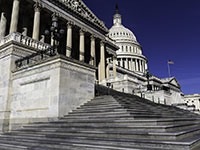Shortly into his tenure as United States Attorney for the Southern District of New York, Preet Bharara announced a crackdown on insider trading, indicating that it would be his office’s “top criminal priority” and that investigations would utilize novel and “covert methods” to achieve convictions, including using wiretaps and informants. According to Bharara, “every legitimate tool should be at our disposal.” Over the next several years, federal prosecutors in Manhattan initiated nearly 100 insider trading cases against some of Wall Street’s leading names, and secured more than 80 convictions, many through guilty pleas. For his work, Time magazine featured Bharara on its February 13, 2012 cover under the headline: “This Man is Busting Wall Street.”
Former Hedge Fund Manager’s Civil Rights Suit Against New York U.S. Attorney Permitted to Proceed into Discovery










